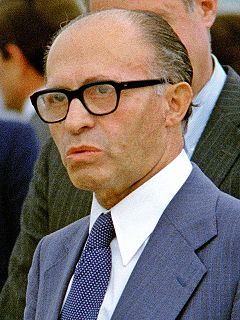A Quote by John Perkins
And that's why I wrote the book, because our country really needs to understand, if people in this nation understood what our foreign policy is really about, what foreign aid is about, how our corporations work, where our tax money goes, I know we will demand change.
Related Quotes
We need a leader who has a sense of balance, an understanding of the ebb and flow of history and a sense of our country's unique place in it. This is a foreign policy debate, and you cannot conduct foreign policy without a sense of what we are fighting for. And any President who can reduce the conduct of this country's affairs to a morning's attack by a bunch of demented fascists does not, in my view, understand what this great nation is all about.
A nation as such does not give aid to another nation. More precisely, the common citizens of our country, through their taxes, give to the privileged elites of another country. As someone once said: foreign aid is when the poor people of a rich country give money to the rich people of a poor country.
The American tradition of foreign policy exceptionalism, our grand strategy as a nation, reaches back much further. Really at the turn - the end of the 19th century, when we achieved power a generation after the Civil War, the outlines of an American vision came into focus, and what we - it was based on two things. One, our realization that our values and our interests were the same, and that our business interests would advance as our values advanced in the world.
The great rule of conduct for us, in regard to foreign nations, is in extending our commercial relations to have as little political connection as possible... Why, by interweaving our destiny with that of any part of Europe, entangle our peace and prosperity in the toils of European ambition, rivalships, interest, humor, or caprice?... It is our true policy to steer clear of permanent alliances with any portion of the foreign world.





































